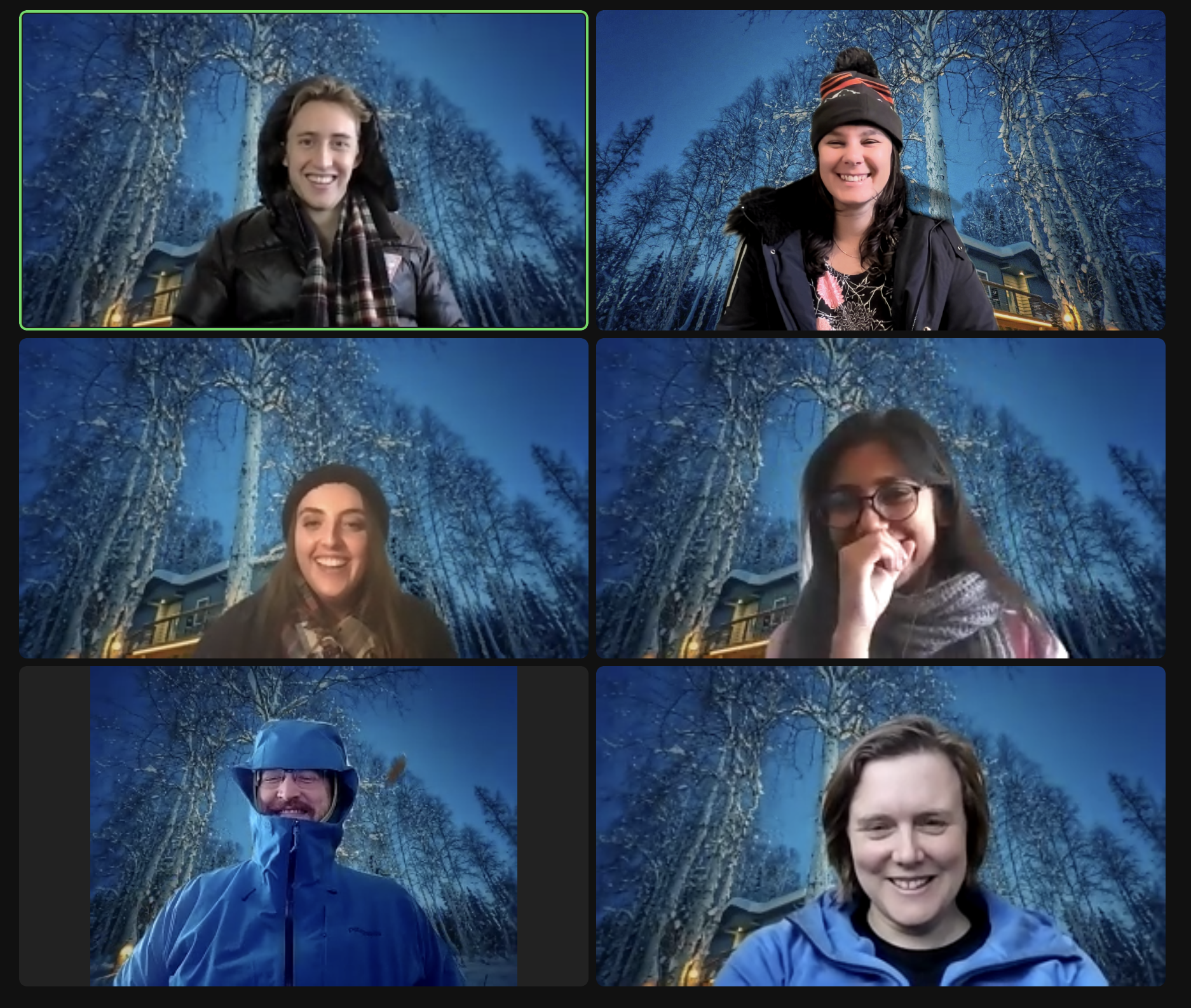Meet the Team
 Clockwise from top left: Philippe, Shamsi, Vidisha, Erin, Nick, Maddie
Clockwise from top left: Philippe, Shamsi, Vidisha, Erin, Nick, Maddie
Vidisha Chowdhury
Vidisha is passionate about using data-based insights to drive social impact and has a multidisciplinary approach to problem solving. She is pursuing her second master’s degree in Data Analytics, Public Policy and Management at Heinz College, Carnegie Mellon University. Her most recent work applies natural language processing to social media data to find effective ways of creating mental health awareness. While in India, she completed a master’s degree in Economics at the Delhi School of Economics and interned for companies like IBM and TCS. This got her interested in applying data-science to improve decision-making. Later, she worked at the Indian Statistical Institute, Delhi for two years, on a project that evaluated the impacts of induction stoves on air pollution in rural India. Her work experience and her coursework in environmental policy at Heinz helped her understand the disproportionate effects of climate change on various communities. Hence, as a DSSG fellow, she intends to contribute to climate justice by helping improve methods of thermal energy use estimation and informing decarbonization strategies in the Arctic region. She is particularly eager to work with geospatial big data as a part of this project.
Maddie Gaumer
Maddie is currently getting her master’s degree in applied and computational mathematics through the Applied Mathematics Department at the University of Washington. Maddie received her bachelor of science in Mathematics from Harvey Mudd College. Prior to her graduate work, Maddie worked as a data scientist at Pacific Northwest National Laboratory (PNNL) and as a software engineer at Microsoft. She enjoys working on problems in the fields of optimization, machine learning, computer vision, and natural language processing. Beyond her technical interests, Maddie is very passionate about social justice issues, particularly those in STEM education. While working at PNNL, she worked as a STEM ambassador, teaching the public about research and showcasing the diversity of scientists at PNNL. Overall, Maddie has a passion for using computer science and mathematics to solve interesting and socially relevant problems, which led to her interest in the DSSG program.
Philippe Schicker
Philippe Schicker is a master’s student at Carnegie Mellon University studying public policy and data analytics with a focus on environmental policy and justice. Philippe holds a bachelor’s degree in mechanical engineering and has published multiple peer-reviewed papers on sustainable engineering solutions. Philippe has attended universities in Los Angeles, CA, Starkville, MS, and Pittsburgh, PA to study environmental impacts on different regions of the United States. He continued his education to supplement his technical engineering education with quantitative policy and data analysis tools to better combat climate change and advocate for environmental justice. Philippe was particularly attracted to the DSSG fellowship for its emphasis to combine rigorous data science techniques with current societal problems. He aims to use his skills and the exposure to continue working on climate change solutions. Therefore, the project related to estimating thermal energy use in Arctic regions which can be used as part of decarbonization planning was particularly exciting to Philippe, allowing him to work the very pressing problem that is climate change. He aspires a career in public service and is looking forward to working with the team on this DSSG project.
Shamsi Soltani
Shamsi is a public health professional and scholar pursuing a PhD in Epidemiology and Clinical Research at Stanford University. Her past work includes transportation injury surveillance and COVID emergency response at the county level, as well as clinical trials, program evaluation, and community based HIV prevention. Currently she’s exploring how to use big data methods with an equity focus, and is excited to experience production level coding in a team environment via DSSG. Shamsi holds an MPH in Epidemiology from Tulane University School of Public Health & Tropical Medicine, and a BS in Neuroscience with French minor from UCLA. She is a multicultural, multilingual first-gen American who likes to read copiously for pleasure, get outdoors, dance, bike and – occasionally, when the mood strikes – bake elaborate meringues.
Nick Bolten
My research focuses on the intersection between pedestrian mobility, data science, and computer science. I work on defining, collecting, producing user-facing tools for, and analyzing pedestrian network data – data that is otherwise rarely collected but exposes serious inequities and accessibility concerns in our public spaces. My PhD work focused on two projects, OpenSidewalks and AccessMap. OpenSidewalks is a project for openly defining, creating, and analyzing pedestrian network data, particularly in OpenStreetMap. AccessMap is a user-facing information retrieval tool, an interactive map that adapts to an individual’s preferences when navigating the built environment: if a person requires curb ramps, it will avoid raised curbs and if a person cannot go up steep hills, it will avoid them, while still providing a realistic path from a start point to an end point. My current research extends on these projects to include a larger number of cities, promote integration between municipalities and OpenSidewalks datasets, and understand pedestrian accessibility on city and regional scales. Both AccessMap and OpenSidewalks have participated in DSSG projects (on the project side!) that pushed them to the next level and I’m excited to be on the other side of the equation: supporting DSSG work as a data scientist.
Erin Trochim
Erin is a geospatial data scientist with a strong interest in decision making focused on energy and northern applications. She received her interdisciplinary PhD from the University of Alaska Fairbanks with a focus on Remote Sensing & Hydrology. Her postdoc with the Alaska Climate Adaptation Science Center included work with the NSF SEARCH program to make permafrost information accessible for policy applications. Currently, her projects focus on energy needs in Alaska including the Arctic Energy Atlas (AEA), creating environmental data for marine and hydrokinetic applications and the Railbelt Decarbonization study. The DSSG heating loads project will provide key information for both the decarbonization and AEA work.